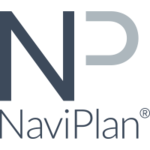Description

eFront

Kitt
Comprehensive Overview: eFront vs Kitt
As of my last update, eFront is a prominent software platform known primarily for its learning management system (LMS) capabilities. Here's a comprehensive overview of eFront, focusing on the aspects you've mentioned:
a) Primary Functions and Target Markets
Primary Functions:
- Learning Management System (LMS): eFront provides a robust solution for managing online learning and training programs. It includes features such as course management, skill assessment, user progress tracking, and compliance training.
- Content Management: Allows administrators to create and distribute a wide range of educational content.
- Customization and Branding: Highly customizable to reflect organizational branding and specific functional requirements.
- Reporting and Analytics: Offers detailed analytics to help organizations track training effectiveness, learner progress, and overall program metrics.
- Certifications and Compliance: Supports certification processes and compliance management, making it suitable for industries with regulatory requirements.
Target Markets:
- Corporate Training: Used by businesses for employee onboarding, development, and compliance training.
- Higher Education: Utilized by educational institutions for facilitating e-learning initiatives.
- Continuing Education Providers: Suitable for entities offering professional development and certification programs.
- Nonprofits and Governments: Adopted by organizations for community education and training programs.
b) Market Share and User Base
eFront is a niche player in the global LMS market, which features several prominent competitors such as Moodle, Blackboard, and Canvas. The exact market share of eFront within this competitive landscape is not publicly quantified to the same detail as some of its larger competitors, but it maintains a strong presence, particularly among markets that prioritize customizable and secure LMS solutions.
The user base of eFront tends to be organizations that require more customizable solutions than what mainstream LMS platforms can often offer. This includes mid-sized to large enterprises looking for specialized features in their training processes, as well as educational institutions that require tailored educational technology solutions.
c) Key Differentiating Factors
1. Customizability:
- eFront is highly customizable, allowing organizations to tailor the platform to their specific needs, including branding, functionality, and user experience. This is a significant differentiator from more standardized solutions.
2. Security Focus:
- eFront places a strong emphasis on data security, making it appealing to sectors that require stringent security measures for sensitive information (e.g., military, finance, healthcare).
3. Integration Capabilities:
- Offers extensive integration options with third-party applications and services, allowing organizations to seamlessly incorporate eFront into their existing IT ecosystems.
4. On-Premises Option:
- Unlike many of its SaaS-based competitors, eFront offers on-premises deployment options, which provides organizations with full control over their data and environment.
5. Advanced Reporting and Analytics:
- eFront provides comprehensive reporting tools that deliver deep insights into training programs, which is valuable for managers seeking detailed analytics beyond standard LMS reporting.
6. Scalability:
- Designed to scale with the needs of growing organizations, ensuring that performance and functionality are maintained as user demands increase.
These differentiators make eFront particularly attractive for enterprises and institutions that require a high degree of control over their LMS environment and need to meet specific security and compliance requirements.
Contact Info

Year founded :
1999
+33 1 80 98 81 00
Not Available
France
http://www.linkedin.com/company/efront

Year founded :
Not Available
Not Available
Not Available
United Arab Emirates
Not Available
Feature Similarity Breakdown: eFront, Kitt
eFront and Kitt are both platforms designed to support specific business needs, although they may cater to different markets and have different primary functionalities.
a) Core Features in Common
-
Learning Management System (LMS) Functionality:
- Both eFront and Kitt are likely to offer LMS features, though this may depend on the specific variant of each platform. This typically includes course creation and management, content delivery, user enrollment, and tracking of learners’ progress.
-
User Management:
- Both platforms likely provide functionalities for managing user roles, permissions, and groups, enabling administrators to control access and personalize experiences based on user profiles.
-
Analytics and Reporting:
- Comprehensive analytics and reporting tools are common, allowing organizations to track performance, engagement, and other key metrics that help in decision-making and demonstrating return on investment.
b) User Interfaces Comparison
- eFront:
- Known for its intuitive, user-friendly interface designed mainly for educational administrators and corporate trainers. It prioritizes ease of use and is structured to facilitate efficient course management and content delivery.
- Kitt:
- The interface of Kitt could vary significantly based on its market application, but if it's a similar platform, it would also emphasize usability. Interfaces may differ if Kitt targets different user bases (such as end-customers or technical users) and may focus on customization and ease of integration.
c) Unique Features
-
eFront:
- Security: eFront is particularly strong in data privacy and security, providing features like encrypted communications and compliance with various international standards. This makes it suitable for organizations with sensitive data.
- Integrations: Known for robust integrations with existing business systems, enhancing its functionality by connecting to other enterprise software tools.
- Customization: Offers extensive customization options for tailoring the platform to specific organizational needs, from branding to functionality adjustments.
-
Kitt:
- Unique Offerings: Without specifying which Kitt you're referring to, if it's a platform similar to LMS or HR tools, it may offer unique features like domain-specific content curation, adaptive learning paths, or gamification aspects that aren’t present in all eFront configurations.
- Sector-Specific Tools: Kitt might include tools or modules that serve particular industry requirements which aren't covered by a more general-purpose platform like eFront.
Explore the specifications of each platform based on the exact nature and version being referred to for Kitt, as its features and focus can vary widely depending on its intended application and user base.
Features

Not Available

Not Available
Best Fit Use Cases: eFront, Kitt
eFront and Kitt cater to different needs within the financial and investment sectors, so understanding their best fit use cases requires examining their strengths and typical application areas.
eFront
eFront is a comprehensive software solution tailored primarily for alternative investment management, providing insights and management capabilities across private equity, real estate, and infrastructure investments. Here's when it makes the most sense:
a) Types of businesses or projects:
- Private Equity Firms: eFront is ideal for companies managing private equity portfolios, offering deep insights and analytical tools specifically designed for this asset class.
- Real Estate Investment Trusts (REITs): The robust platform of eFront helps in managing complex real estate portfolios by providing detailed performance analysis and reporting capabilities.
- Infrastructure Investment Firms: Given the intricacies of infrastructure investments, eFront supports the management of long-horizon and capital-intensive projects.
- Institutional Investors: Large institutional investors, such as pension funds or sovereign wealth funds, can utilize eFront for enhanced risk management and performance analysis.
Kitt
Kitt is a platform tailored for more specific technological and operational needs, often involving modular and customizable workspace solutions. It's typically preferred in the following scenarios:
b) Preferred scenarios:
- Flexible Office Spaces: Companies needing adaptable office solutions that can scale quickly will benefit from Kitt’s ability to offer customizable spaces.
- Startups and SMEs: Businesses in growth phases that require agile, cost-effective office solutions with potential for quick scaling.
- Tech Companies: Those that need dynamic environments which can be modified as teams evolve will find Kitt’s approach to workspace as a service particularly aligned.
Catering to Different Industry Verticals or Company Sizes
eFront:
- Industry Verticals: eFront serves verticals like finance and real estate and addresses specific needs in asset management, enabling firms to manage a variety of asset types and complex investment structures.
- Company Sizes: Typically, eFront is better suited for medium to large enterprises due to its expansive feature set and ability to handle vast amounts of data and complex portfolio structures. Smaller firms might find the software more than they need unless they are gearing up for significant growth or diversification.
Kitt:
- Industry Verticals: While not tied to a specific industry, Kitt's flexible office solutions particularly appeal to industries with fast-paced growth environments like technology, digital marketing, and other service sectors requiring rapid adaptability.
- Company Sizes: Kitt is aimed at both small outfits needing their first dedicated space and larger companies seeking satellite offices or project-based spaces. The scalable nature of Kitt’s offerings makes it versatile for multiple company sizes, particularly for those with fluctuating space needs.
Both eFront and Kitt are focused on optimizing certain aspects of business management, whether through sophisticated investment portfolio management or through flexible, scalable workspace solutions. Their effectiveness largely depends on aligning their features and capabilities with the specific challenges and growth objectives of the client company.
Pricing

Pricing Not Available

Pricing Not Available
Metrics History
Metrics History
Comparing teamSize across companies
Conclusion & Final Verdict: eFront vs Kitt
To provide a comprehensive conclusion and final verdict for eFront and Kitt, it's important to compare the two platforms across several key criteria such as features, usability, flexibility, scalability, cost, and support. Here's an analysis based on general characteristics often associated with e-learning platforms like eFront and AI-driven tools like Kitt:
a) Best Overall Value
- eFront: If your organization seeks a robust Learning Management System (LMS) with a comprehensive set of features tailored for corporate training, eFront may offer the best overall value. It is ideal for businesses requiring a scalable and customizable platform that integrates well with existing systems.
- Kitt: On the other hand, if your focus is more on advanced AI-driven functionalities, and you need a tool that leverages AI to personalize and improve user interaction, Kitt may offer superior value. Kitt is beneficial for companies looking to utilize AI in automating repetitive tasks and enhancing user experience.
b) Pros and Cons
eFront
Pros:
- Customizability: Highly customizable with advanced administrative features, allowing organizations to tailor the platform to their specific needs.
- Comprehensive Feature Set: Offers an extensive range of features such as compliance training, skill gap testing, and eCommerce capabilities.
- Scalability: Well-suited for large enterprises due to its scalability and ability to handle a large number of users.
Cons:
- Complexity: May have a steeper learning curve due to its extensive feature set.
- Cost: Potentially higher costs compared to simpler LMS solutions, particularly for smaller organizations or those with limited budgets.
Kitt
Pros:
- AI Integration: Leverages AI capabilities to automate and improve processes, potentially increasing efficiency and reducing workload.
- User Experience: Provides a modern, intuitive user experience with personalized learning paths and recommendations.
- Innovative Features: Often includes cutting-edge technology features that appeal to tech-savvy users and organizations seeking innovation.
Cons:
- Limited in Scope: While offering advanced AI functionalities, it might lack some core LMS features that traditional platforms like eFront provide.
- Dependence on AI: Over-reliance on AI could be a disadvantage if the algorithms do not perform as expected or if there is a lack of human oversight.
c) Specific Recommendations
- Evaluate Needs: Users should clearly define their organizational needs, what they expect from the platform, and whether those needs are more aligned with a traditional LMS or an AI-driven solution.
- Budget Considerations: Consider the budgetary constraints and determine which solution offers the best return on investment (ROI) for your specific situation.
- Pilot Test: Conduct a pilot project or trial for both platforms if possible, to assess their functionalities, user interface, and overall impact on your workflows.
- Long-Term Goals: Consider your organization's long-term goals regarding scalability, technological adoption, and the degree of customization needed.
In conclusion, the decision between eFront and Kitt should be guided by your specific organizational requirements. eFront is more suited for companies prioritizing a feature-rich and customizable LMS solution, while Kitt is ideal for those emphasizing AI capabilities and modern, user-centric experiences.



